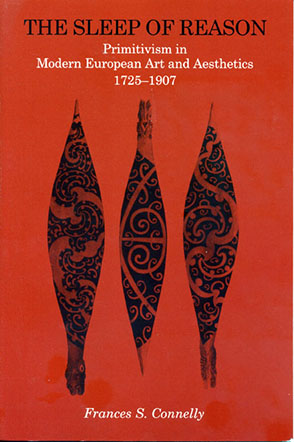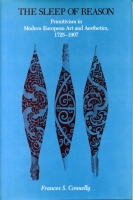
The Sleep of Reason
Primitivism in Modern European Art and Aesthetics, 1725–1907
Frances S. Connelly
The Sleep of Reason
Primitivism in Modern European Art and Aesthetics, 1725–1907
Frances S. Connelly
“The Sleep of Reason is an earnest, thoughtful, and original approach to the currently much-discussed issue of ‘primitivism’ as cultural and aesthetic concept.”
- Description
- Reviews
- Bio
- Subjects
Based upon a close reading of eighteenth- and nineteenth-century sources, including voyage accounts, ethnographies, aesthetic theories, and popular journals, The Sleep of Reason establishes that the term "primitive" art did not refer so much to actual stylistic traditions but to a collection of visual attributes that Europeans construed to be universal characteristics of "primitive" expression, specifically the hieroglyph, the grotesque, and the ornamental. Connelly provides case studies of artists and aestheticians who advocated, attempted, or realized the assimilation of these "primitive" characteristics, including some artists never before associated with primitivism as well as significant re-evaluations of Gauguin and Picasso.
“The Sleep of Reason is an earnest, thoughtful, and original approach to the currently much-discussed issue of ‘primitivism’ as cultural and aesthetic concept.”
Frances S. Connelly is Associate Professor of Art History at the University of Missouri-Kansas City.
Mailing List
Subscribe to our mailing list and be notified about new titles, journals and catalogs.



